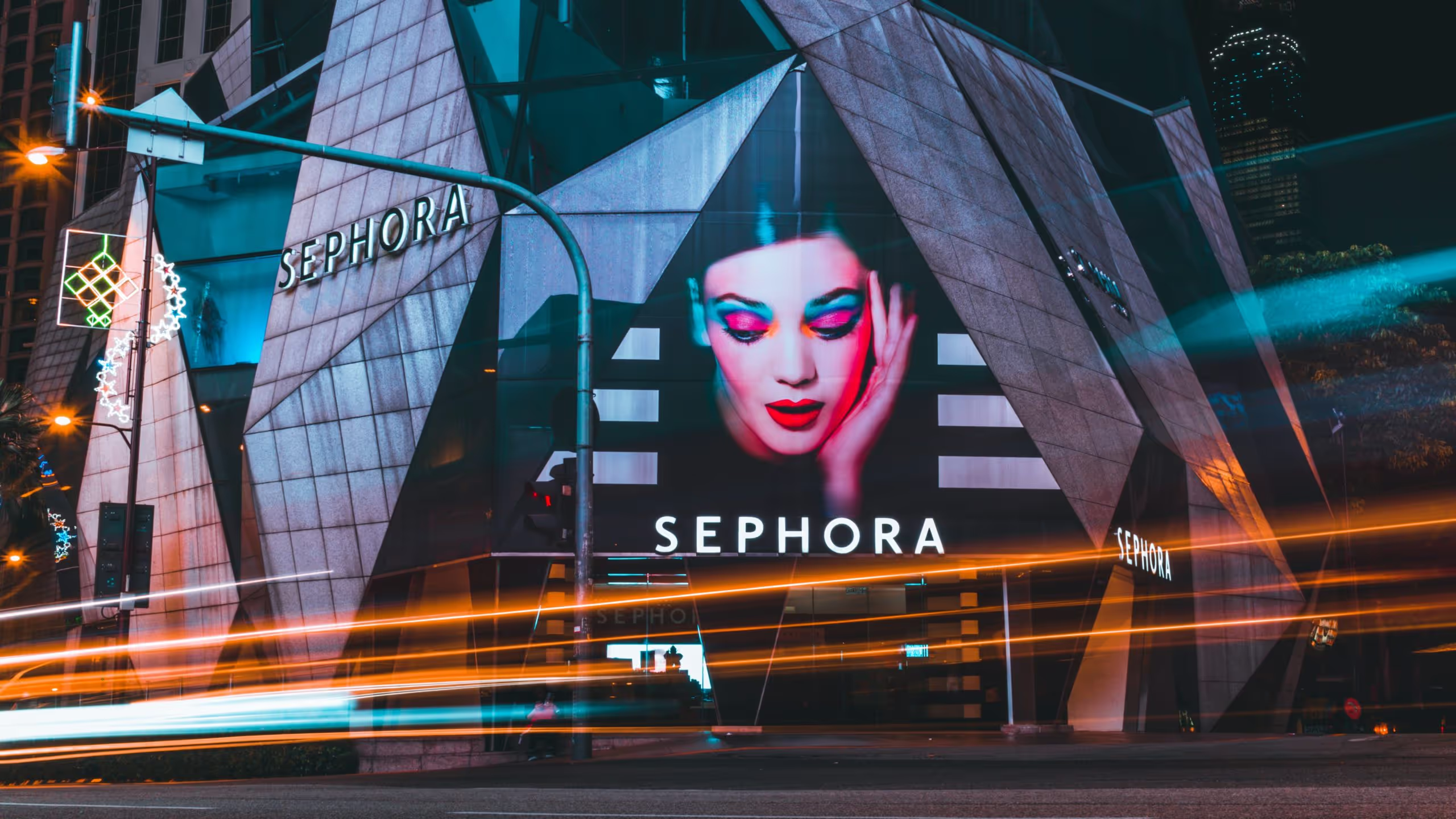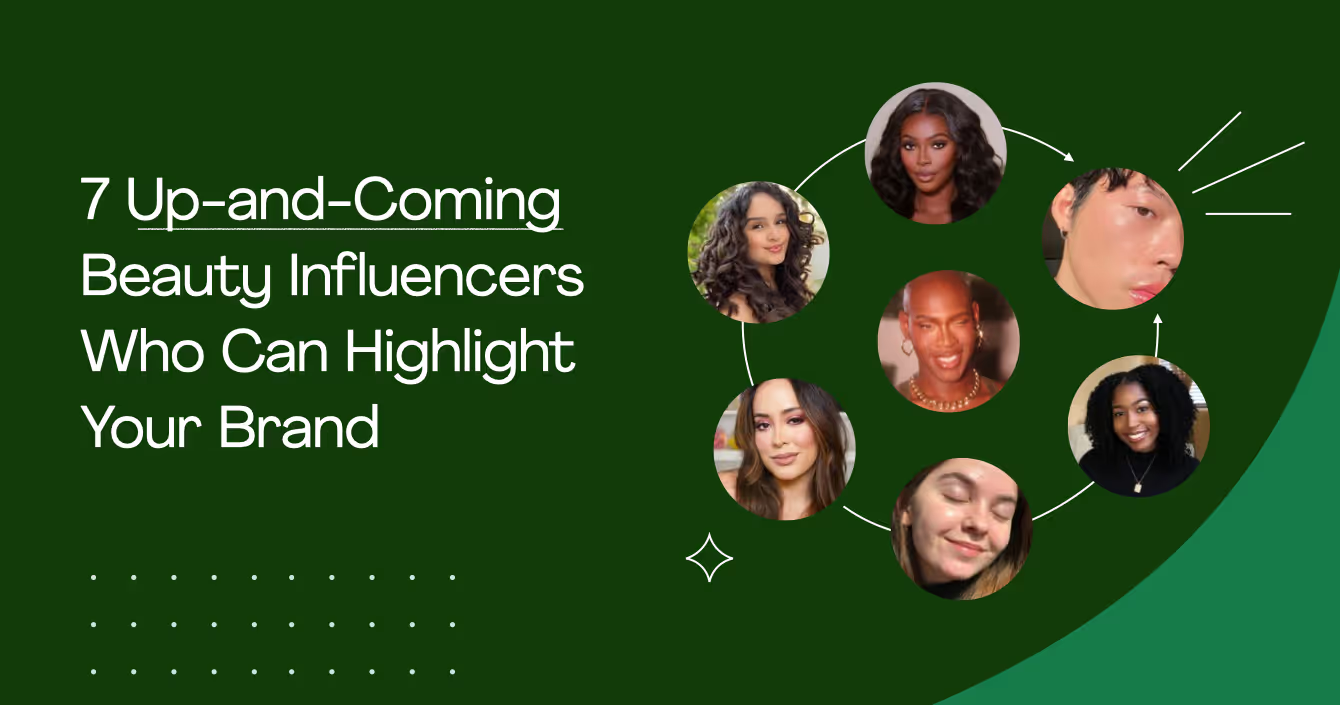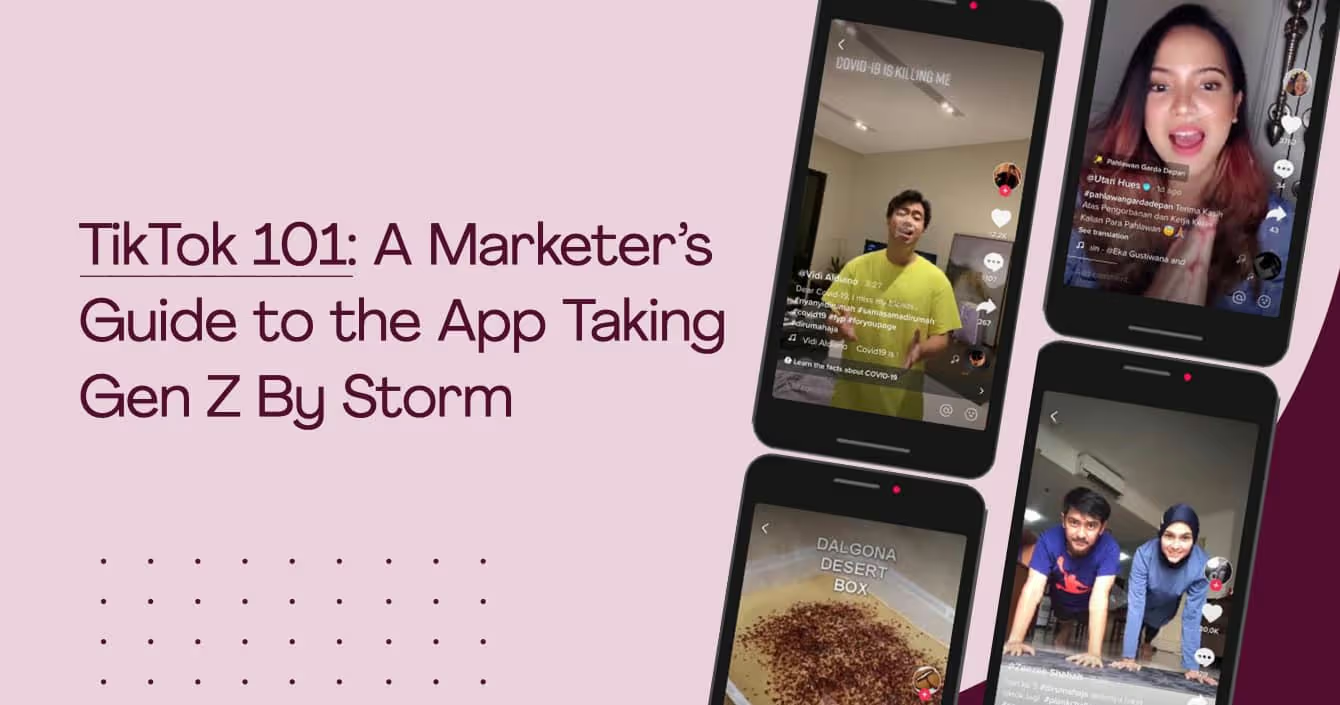How Gen Z's Favorite Beauty Brands Leverage Influencer Marketing to Drive Sustainable Growth
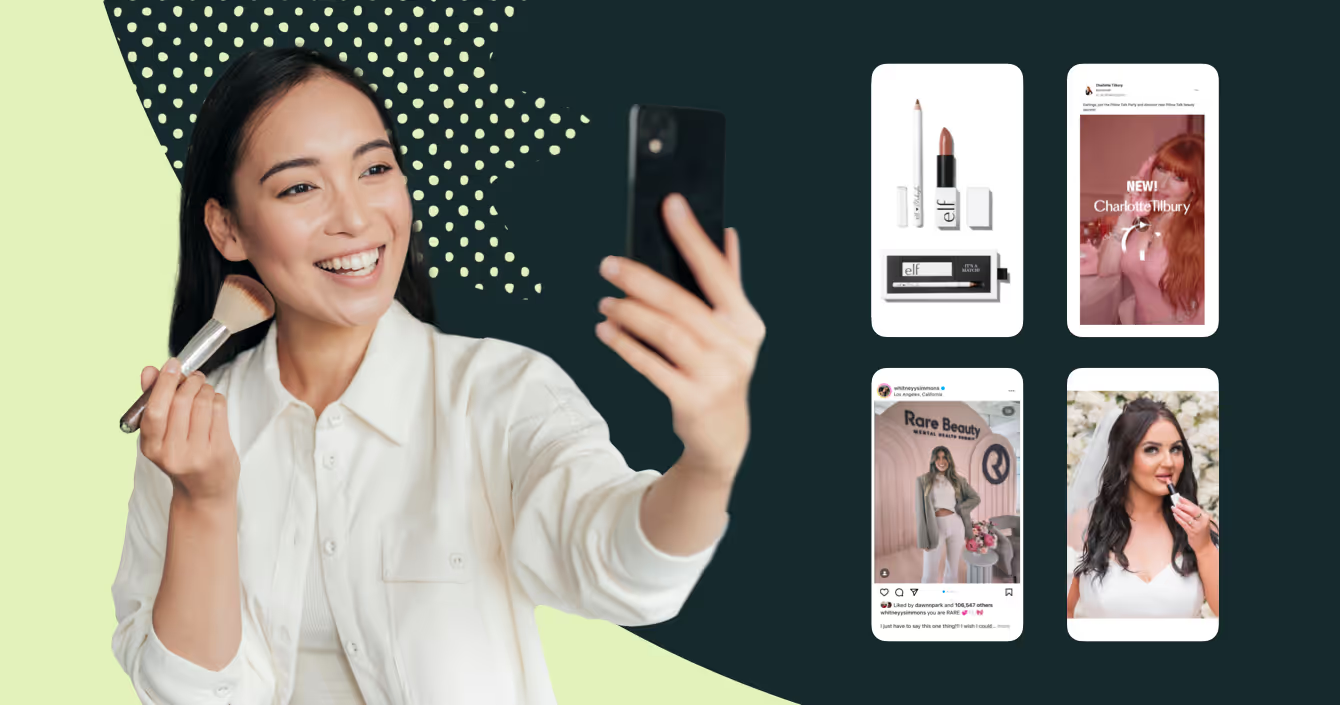
As we can see from recent trends like ‘de-influencing’, digitally native shoppers like Gen Zers demand honesty and genuine opinions now more than ever before. In fact, 92% of Gen Zers say authenticity is the most important value for them. Following suit, the world’s savviest brands are placing authenticity as a core value in their influencer marketing campaigns.
Today, we’re unpacking how Gen Z’s favorite beauty brands — Rare Beauty, e.l.f. Beauty, and Charlotte Tilbury — are leaning into authentic influencer partnerships to create campaigns that truly resonate with younger consumers.
Rare Beauty
Although it was founded by Selena Gomez, Rare Beauty is unlike other celebrity brands. Consumers aren’t buying from Rare Beauty just because they’re big fans of Selena Gomez. Instead, they’re invested in what the mission-driven brand stands for: breaking traditional norms, destigmatizing mental illness, and fostering conversations around hope and agency. These ideas are integrated into every element of Rare Beauty — even its influencer marketing strategies.
Unlike the extravagant influencer trips and parties of other beauty brands, Rare Beauty brings its influencer relationships down to earth by inviting intimate groups of influencers to various wellness retreats where they’re under no obligation to produce content. Rather, they spend the weekend lounging in their comfiest clothes and attending wellness experiences and fireside chats with mental health experts.
From a marketer’s perspective, this may seem counterintuitive: if you’re not guaranteed to get content back from influencers, what is the return on investment? But these kinds of community building initiatives are what make a world of a difference when it comes to building a loyal customer base — one that spreads organic word-of-mouth advocacy to their friends (and followers). In fact, Rare Beauty’s unique influencer strategies have allowed it to far outrank other beauty brands in terms of volume of influencer coverage, growing at 110% year-over-year with influencers.
Additionally, Rare Beauty truly embraces the idea that everyone is an influencer. In May, the brand hosted its first mental health summit, inviting 150 community members — from health and wellness creators like Whitney Simmons to the brand’s most devoted customers — to gather in person, while 50,000 others joined virtually on TikTok from around the world. Again, while attendees weren’t obligated to create content, many still highlighted the event on their own social media accounts, further boosting brand awareness and affinity.
By investing in its brand community, Rare Beauty has been able to grow at an astronomical rate. A recent survey showed that Rare Beauty ranks second on its list of the top cosmetics brands among Gen Z, and by the end of 2023, Rare Beauty is expected to exceed $300 million in sales — which is triple what it earned in 2022, when sales doubled from 2021.
e.l.f. Beauty
In August, e.l.f. Beauty reported its 18th consecutive quarter of sales growth, crediting its social-savvy marketing team for the company’s continued success. On its most recent earnings call, e.l.f. Beauty CEO Tarang Amin talked about the brand’s “disruptive marketing engine,” citing its ability to “generate buzz-worthy moments for our community and reach new audiences with our collaborations.”
e.l.f. Beauty knows how to create viral moments, not only by running unique co-branded promotions with other brands, such as its iconic collaboration with Chipotle, but also by working with a diverse group of creators to varying capacities.
The brand regularly activates micro-influencers to promote its products on TikTok, then turns their content into ads. But to take its influencer partnerships to the next level, e.l.f. Beauty co-creates entire product lines with popular macro-influencers in the beauty space.
For example, the brand worked with mega beauty influencer Mikayla Nogueira (15 million followers on TikTok) to create a limited-edition lip liner and lipstick duo in celebration of Mikayla’s wedding. On launch day, the wedding lip kit sold out on the brand’s DTC site within 18 minutes, marking its fastest-ever collection sellout. The collection also helped with brand awareness, as 75% of buyers were first-time customers.

But it doesn’t stop at TikTok collaborations. Earlier this year, e.l.f. Beauty aired its first Super Bowl ad featuring beloved actress Jennifer Coolidge, who is most recently renowned for her role as Tanya in the hit HBO series, The White Lotus.
The brand further leveraged their new relationship with Jennifer Coolidge after the Super Bowl, having her star in the brand’s get-ready-with-me YouTube series, “Vanity Table Talks.” e.l.f. Beauty CFO Mandy Fields explained, “[Jennifer Coolidge] is very relevant right now. That’s what we strive to do with our marketing spend. We strive to be culturally relevant and authentically engage with our community.”
Staying on top of trends and being part of cultural zeitgeists has allowed e.l.f. Beauty to seamlessly build a multi-channel influencer marketing program that engages audiences in ways that truly resonate. By doing so, e.l.f. Beauty has been able to experience a minimum of 20% growth in each of the last 18 quarters, with no signs of slowing down.
Charlotte Tilbury
It’s no longer just millennials who love Charlotte Tilbury — a growing number of Gen Zers are embracing the brand’s famed products. In fact, according to a recent beauty trends report, Charlotte Tilbury was the most popular beauty brand last year, raking in an astounding 450,000 average monthly searches and a whopping 1.3 billion TikTok views globally.
Like many other millennial-friendly beauty brands that were founded in the early days of social media, Charlotte Tilbury has been ramping up its efforts to adapt to newer platforms and younger audiences. Charlotte Tilbury, the brand’s founder, explained, “I’ve always believed it is essential for us to have an active presence across all channels; each has its own specialities and attracts its own unique audiences that we want to engage with.”
It’s no wonder the brand takes a full-funnel approach to influencer marketing, running a variety of activations at the same time. Here are just some of Charlotte Tilbury’s ingenious strategies:
- Traditional influencer program: With a focus on video content, Charlotte Tilbury’s influencer partners produce makeup tutorials and get-ready-with-me style videos for Instagram, Facebook, and TikTok. This type of content is high-performing and extremely effective, because audiences can watch as creators apply the makeup and see which product sets to purchase to achieve each look. The brand then takes these influencer-generated videos and repurposes them as paid ads across various social channels.
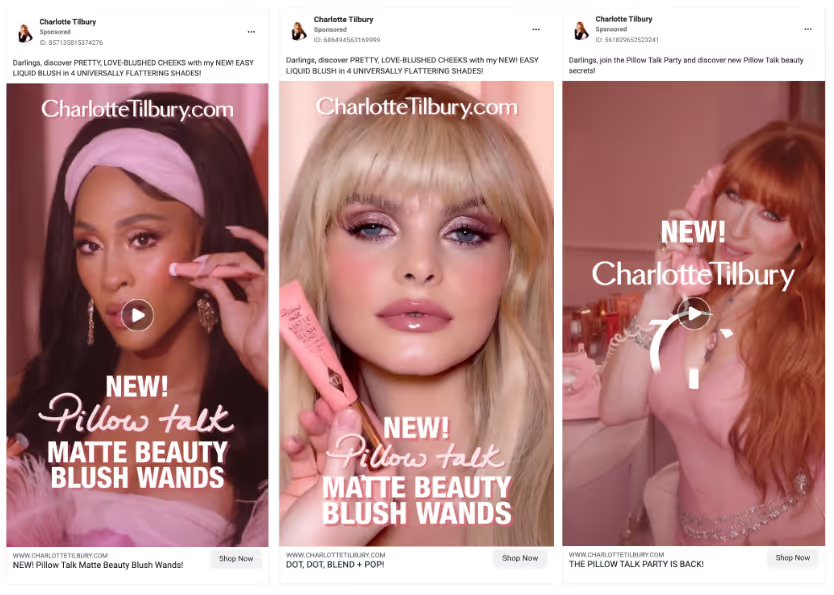
- Affiliate program: The Charlotte Tilbury Affiliate Program allows creators to earn commissions every time someone purchases from Charlotte Tilbury’s website using the creator’s unique affiliate code, which they typically share on their Instagram Stories. The code allows their followers to get a 15% discount, and affiliates themselves can receive discounts of up to 30% on products. Plus, affiliates gain access to VIP products and more. This attractive affiliate model has allowed the brand to build a strong community of affiliates and an effortless revenue-generating machine — all without breaking the bank.
- Product seeding: Charlotte Tilbury often runs product seeding campaigns, sending PR packages and gifts to influencers, which include a selection of their popular products. With Instagram-worthy packaging and exciting new launches, these packages encourage influencers to try the products and share about them with their followers in organic content, such as unboxing videos, tutorials, and reviews.
- Celebrity brand ambassadors: For years, Charlotte Tilbury has leveraged celebrity endorsements from the likes of Kate Moss, Blake Lively, Drew Barrymore, and Twiggy — particularly for their Pillow Talk product line. In March of this year, the brand also announced its partnership with Gen Z’s favorite supermodel, Bella Hadid, as the official face of the brand. The Charlotte Tilbury team has been known to nurture these partnerships with the celebrities in their network, regularly sharing exclusive behind-the-scenes content from high-profile, star-studded events.
By implementing a full-funnel influencer marketing strategy, Charlotte Tilbury effectively guides consumers from initial awareness through to conversion and even post-purchase engagement, maximizing the impact of their influencer program across the entire buyer’s journey.
